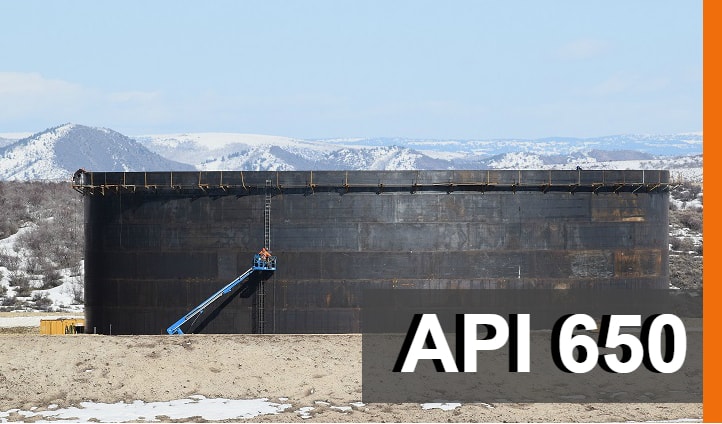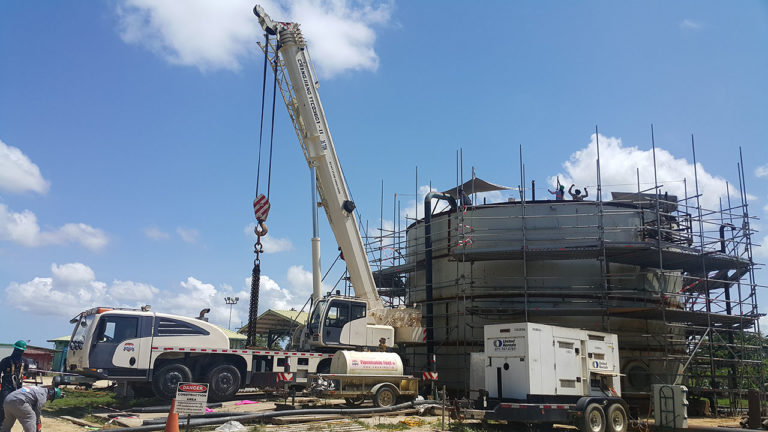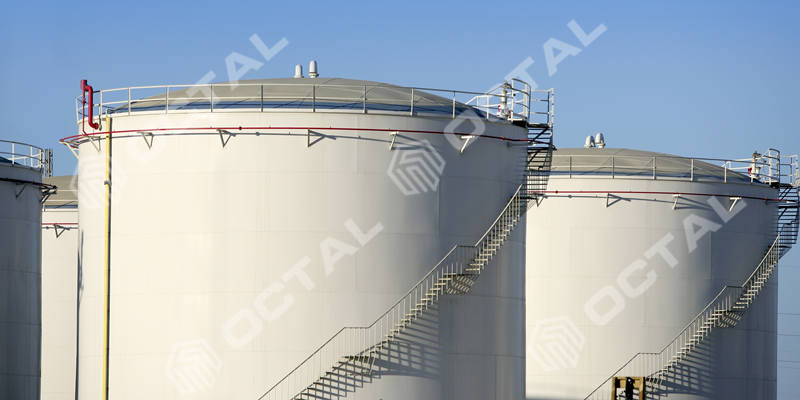The Advantages of Welding Examination for Boosted Safety and Efficiency
Welding examinations are necessary for making sure that structures meet stringent industry criteria. They play an important role in determining problems early, thereby enhancing safety and minimizing the danger of disastrous failings. In addition, these evaluations can result in substantial price financial savings by protecting against expensive repairs and downtime. As organizations intend for enhanced efficiency and integrity, the importance of a robust inspection procedure can not be overemphasized. What other advantages might emerge from a dedication to extensive welding inspections?
Making Certain Compliance With Sector Standards
Ensuring compliance with industry standards is vital for preserving quality and safety and security in welding jobs. Complying with recognized methods not just safeguards employees but also boosts the sturdiness and performance of the final item. Welding assessments conducted at different phases of the process assistance identify any deviations from these requirements, enabling timely restorative actions. This aggressive strategy alleviates the risk of failures that could arise from second-rate workmanship.
Compliance with industry requirements fosters trust fund among stakeholders, including clients, regulatory bodies, and the workforce. It indicates a dedication to excellence and liable practices, which can lead to boosted organization possibilities and an affordable side in the market - API 650 Welding Inspection. Routine evaluations additionally guarantee that materials and techniques made use of straighten with the current technical innovations and safety policies. Inevitably, adherence to sector requirements is not merely a regulative need yet a foundation of quality control in welding projects
Enhancing Safety And Security Via Early Detection of Flaws
While the primary goal of welding evaluations typically fixates conformity, they play a necessary duty in boosting safety and security by enabling the very early discovery of problems. Identifying concerns such as incomplete blend, fractures, or porosity during assessments can substantially alleviate the risk of tragic failings. Early discovery permits prompt treatments, ensuring that faulty welds do not compromise architectural stability.
Furthermore, organized evaluations foster a culture of safety and security within organizations by highlighting the significance of quality assurance. This aggressive strategy not just secures workers but likewise safeguards the surrounding atmosphere. Regular assessments can disclose fads in issue occurrence, permitting changes in welding techniques and training programs to address underlying issues.
Welding inspections serve as a vital secure, reinforcing general security and efficiency by recognizing issues prior to they escalate right into major hazards. This dedication to high quality straight adds to the durability and integrity of welded frameworks.
Reducing Costs by Avoiding Failings
By implementing detailed welding examinations, organizations can properly minimize prices related to failures and rework. The positive recognition of issues throughout the welding process minimizes the threat of catastrophic failings that can lead to expensive repair work or replacements. Early detection permits prompt interventions, which prevents the acceleration of minor concerns into major issues that stress sources and budget plans. Furthermore, by making sure that welds satisfy specified requirements, organizations can avoid hold-ups in project timelines caused by the need for extensive rework or added examinations later in the process. This not only conserves cash however also enhances functional effectiveness. click this Moreover, a reputation for high quality craftsmanship can lead to boosted client fulfillment and repeat company, further adding to financial security. On the whole, spending in welding evaluations is a critical method that promotes price savings while guarding the integrity of welded structures.
Improving Performance and Long Life of Structures


Welding examinations play an essential function in enhancing the efficiency and longevity of structures, as they verify that welds are carried out to the highest requirements. By identifying defects early in the welding process, assessments protect against weak points that can endanger architectural stability. This positive strategy assurances that the products used satisfy needed specifications, consequently maximizing their load-bearing ability and strength.
In addition, consistent tracking of welding techniques adds to the total high quality of construction jobs. The visit this site possibility for fatigue and failure over time is considerably decreased when welds are verified for compliance with industry requirements. Structures that are constructed with appropriately inspected welds are likely to experience less maintenance concerns and improved toughness.
Eventually, strenuous welding examinations not just boost the instant efficiency of a framework but also prolong its functional life-span, giving lasting worth to both building contractors and end-users alike.
Fostering a Culture of High Quality and Integrity
A dedication to high quality and reliability in welding practices substantially adds to the total success of building and construction tasks. When organizations focus on these values, they cultivate a culture that urges thorough attention to detail and adherence to market standards. This culture not just improves the skill level of welders yet likewise promotes liability and team effort amongst all stakeholders associated with the project.

Normal welding evaluations work as a keystone in this cultural change, enhancing the significance of constant efficiency and safety and security measures (API 650 Welding Inspection). By carrying out strenuous evaluation protocols, business can recognize prospective defects early, mitigating threats and avoiding pricey rework. An emphasis on top quality and dependability imparts self-confidence amongst customers and partners, leading to more powerful connections and improved credibilities.
Eventually, promoting a society of top quality and dependability in welding methods not just elevates task results however likewise assures long-lasting sustainability and success in the building and construction industry.
Regularly Asked Inquiries
What Credentials Should a Welding Assessor Have?
A welding examiner must have appropriate qualifications, such as AWS CWI or CSWIP. Furthermore, they ought to have experience in metallurgy, welding processes, and assessment techniques, together with strong logical skills and attention to information for reliable assessments.

How Typically Should Welding Inspections Be Performed?
Welding assessments should be carried out consistently, see here ideally after each significant phase of the welding process. Furthermore, regular evaluations ought to happen based on project demands, service problems, and governing standards to ensure continuous quality and safety and security.
What Tools Are Used During Welding Inspections?
Welding evaluations use different devices, including ultrasonic testers, magnetic fragment testers, aesthetic assessment tools, and radiographic tools. Each device offers a specific objective, guaranteeing weld top quality and structural integrity with complete assessment and evaluation.
Can Welding Inspections Be Carried Out Remotely?
Welding assessments can indeed be done remotely utilizing innovative innovations such as drones and specialized cameras. These devices allow inspectors to evaluate welding top quality and stability from a range, boosting efficiency and safety in different atmospheres.
What Are the Usual Kinds Of Welding Defects?
Typical types of welding defects consist of porosity, cracks, insufficient combination, undercutting, and slag addition. These defects can endanger the stability and strength of welds, bring about potential failures in structural applications if not dealt with correctly.
Welding assessments are crucial for making certain that frameworks fulfill strict industry standards. Welding inspections performed at numerous phases of the process aid recognize any kind of variances from these requirements, enabling timely restorative activities. Welding assessments play a necessary duty in enhancing the efficiency and longevity of frameworks, as they validate that welds are executed to the greatest requirements. Welding examinations should be carried out routinely, preferably after each significant stage of the welding process. API 650 Welding Inspection. Welding examinations use various devices, including ultrasonic testers, magnetic particle testers, visual assessment devices, and radiographic tools